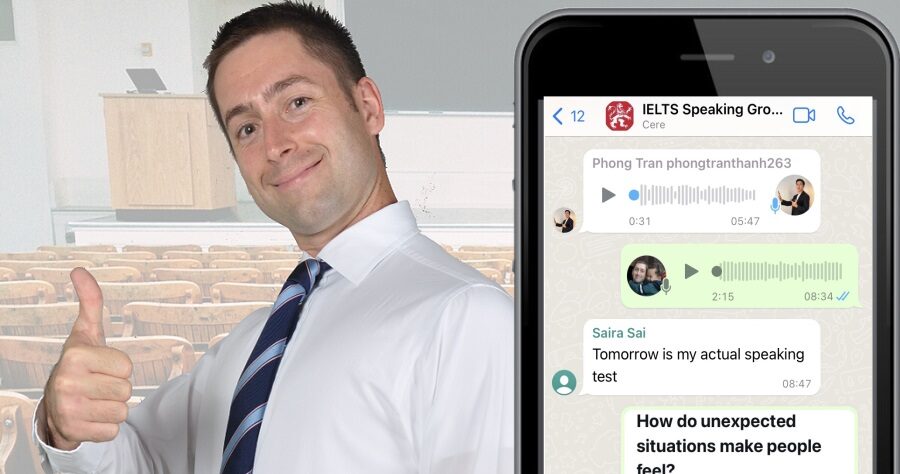This week you will learn to speak about a topic that comes up on the IELTS every few years…complaining! Specifically: how and why do people complain?
Step 1: Listen to the full model. Note any new language you come across. Remember that a complete transcript can be found at the bottom of this blog post.
Step 2 (free): Listen to this week’s IELTSCast episode to get a sample of the ‘repeat after me’ exercise. Do the exercise multiple times until you can recite the language accurately from memory:
Step 3 (‘Access Full Lessons‘): Below is the full speech shadowing exercise. (Click here to sign up if you do not yet have access.) Push yourself to mimic the language as closely as you can. Note small things, even subtle differences in the way your mouth and throat feel as you produce the language:
Step 4 (‘Join a Whatsapp Group): Post your speech sample to your Whatsapp group. If you haven’t yet been added to a group, email me! ryan@ieltsielts.com
Transcript:
What do people usually complain about in public places?
In public places, people commonly complain about inadequate facilities, poor sanitation, noise levels and overcrowding.
When people complain, do they usually do it verbally or in writing?
I think it depends on the situation and size of the problem. For smaller nuisances, verbal communication seems to be more prevalent. People tend to voice their concerns directly to the relevant authorities or service providers, perhaps to get an immediate response. I think written complaints would be more common for complex or ongoing issues, such as noise coming from a construction site.
Do you think social media has changed the way people complain about services or products?
Oh yes, it certainly has. Platforms like Twitter and Facebook allow individuals to voice their concerns instantly and to a broad audience. This not only puts pressure on businesses to address issues promptly but also empowers consumers by providing a public forum for expressing dissatisfaction. This new way to complain did not exist 30 years ago.
Do you think it is important for businesses to address customer complaints?
Absolutely. Resolving complaints fosters customer loyalty and enhances the company’s reputation. In today’s interconnected world, where information spreads rapidly, neglecting customer grievances can lead to a tarnished image and a loss of clientele.
How do you think complaints should be handled to ensure customers are satisfied?
I feel companies should first establish clear and accessible channels through which customers can express their concerns. Once a complaint is received, a prompt response acknowledging the issue is essential. Investigating the root cause is then necessary. Finally, offering a fair resolution helps to win back customer loyalty.
When someone is complaining in an aggressive way, should they be punished?
I guess it depends on the degree and nature of the aggression. Businesses should do what they can to de-escalate aggressive clients and deal with the cause of unhappiness. However, if the aggressive behaviour persists or starts to involve personal threats then I think the business has the right to refuse service or –in extreme circumstances– call the police.
